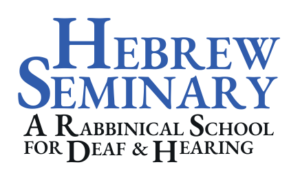By Rabbi Dr. Douglas Goldhamer
In last week’s Torah portion, members of the community of Israel profane themselves by engaging in licentious behavior with Moabite women and worshiping the Moabite god. Hashem becomes incensed with Israel and tells Moses to impale the leaders committing these actions. “The Lord’s wrath may turn away from Israel.” (Numbers 25:4) Pinchas witnesses an Israelite consorting with a Midianite woman in front of Moses and the Israelite community. Pinchas takes a spear and stabs the guilty Israelite Zimri and the woman Cozbi fatally.
This week’s Torah portion, Pinchas, begins with Hashem saying to Moses, “Pinchas, son of Eleazar, son of Aaron the priest, has turned back My wrath from the Israelites by displaying among them his passion for Me, so that I did not wipe out the Israelite people…I grant him my pact of friendship…It shall be for him and his descendants after him a pact of priesthood for all time, because he took impassioned action for his God.” By killing Zimri and Cozbi, Pinchas fulfilled Hashem’s command to Moses. He directed his complete being, body and soul, to maintain the complete integrity of the Jewish people’s commitment to the covenant of God which was clearly articulated at Sinai.
Pinchas publicly challenged the community of Israel and its lack of adherence to the sacred code of the 613 commandments of Torah. Clearly, the moral code of the New Israelite polity was put to its first public test. Zimri and Cozbi participated in an irresponsible and despicable return to pre-Sinai morality. If God was everything, as Aristotle teaches (“thought thinking itself”), then God was subject, predicate and object. As Torah maintained again and again, there is nothing but God. Therefore, Pinchas’s zealotry was a religious act, determined not only to preserve the crown of God’s glory – the New Covenant of Torah—but it was also a moral act, designed to preserve God Himself.
In commenting on this week’s Torah portion, Levi Yitzhak writes in Kedushat Levi, “Pinchas zeh Eliyahu. Pinchas is Elijah [Zohar II, p. 190A) and Elijah lives on forever (Zohar II, p. 197A-B.) How is this so? We must understand that our physical bodies are not deeply connected to Divine service, since the body tends to look out for its own needs. But, our soul is always attuned to the fear of heaven. The body is unlike the soul. It is corruptible, it dies. However, if the body could serve God like the soul at all times, no one would die….”
Pinchas accepted that in killing Zimri and Cozbi, his own life was at risk. He might be killed for stabbing Zimri and Cozbi. But, Pinchas did not give thought to his own physical needs. He was devoted to serving God, with both body and soul. Pinchas saw his body and soul as one, having no distinction. And for this zealotry, God rewards him with “a pact of friendship and a pact of priesthood for all time.”
Yet, last week’s Torah portion and this week’s portion, are not that clear cut. Of course, we are all God. There is no separation between us and God. There is no empty space in the universe that is devoid of God. This leads to all kinds of healing. As I said, Aristotle’s definition of God as “thought thinking itself” denies that there are some places devoid of God and affirms the Deuteronomic claim that God is everything and everywhere. I know our Kabbalistic tradition holds Pinchas at the highest level, but I have difficulty championing Pinchas’s zealotry and murder and then God’s particular blessing. I am puzzled that God can reward someone for the savage murder of two people.
I love God; indeed, God is love. I recognize that Levi Yitzhak’s commentary suggests that the reason Pinchas received this blessing was that he had transcended physical needs and physical concerns, and was completely devoted to God. Does this redeem the terrorist, particularly in our age of “suicide martyrs”? Levi Yitzhak’s view is profound, but it steps onto a slippery slope. This teaching of Pinchas cannot be condemned, but at the same time, it cannot be applauded. Yes, the Aristotelian teaching that soul and body are one is very important, and is part of our Jewish faith, but each time we learn that soul and body are one, we have to recognize its context. We cannot be so open minded that our brains fall out, and we applaud the suicide martyr.
When we look at this text in our Torah scroll, the letter yud in Pinchas’s name in verse 11 is written smaller than the other letters. This teaches that, when we act with violence, the yud in us (standing for the name of God and for the name “Jew”) is greatly diminished. Let us remember that the Torah is truly the word of God. Frankly, there is no separation between the word and the writer. The Torah is indeed the Lord our God.
Rabbi Dr. Douglas Goldhamer is the senior rabbi of Congregation Bene Shalom, Skokie, and the president and professor of Kabbalah at Hebrew Seminary, Skokie.

Leave A Comment
You must be logged in to post a comment.